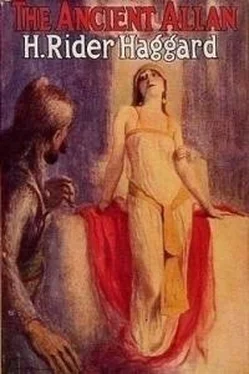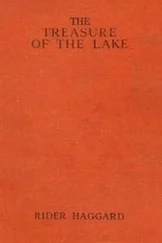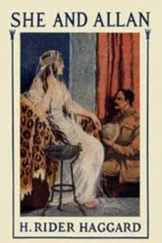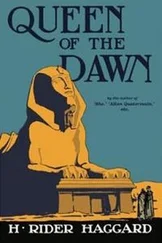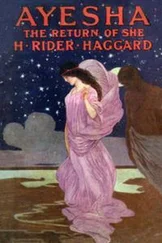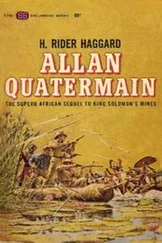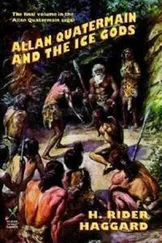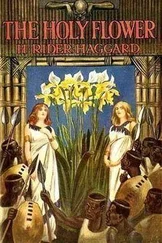Генри Хаггард - The Ancient Allan
Здесь есть возможность читать онлайн «Генри Хаггард - The Ancient Allan» весь текст электронной книги совершенно бесплатно (целиком полную версию без сокращений). В некоторых случаях можно слушать аудио, скачать через торрент в формате fb2 и присутствует краткое содержание. Год выпуска: 2014, Издательство: epubBooks Classics, Жанр: Исторические приключения, на английском языке. Описание произведения, (предисловие) а так же отзывы посетителей доступны на портале библиотеки ЛибКат.
- Название:The Ancient Allan
- Автор:
- Издательство:epubBooks Classics
- Жанр:
- Год:2014
- ISBN:нет данных
- Рейтинг книги:3 / 5. Голосов: 1
-
Избранное:Добавить в избранное
- Отзывы:
-
Ваша оценка:
- 60
- 1
- 2
- 3
- 4
- 5
The Ancient Allan: краткое содержание, описание и аннотация
Предлагаем к чтению аннотацию, описание, краткое содержание или предисловие (зависит от того, что написал сам автор книги «The Ancient Allan»). Если вы не нашли необходимую информацию о книге — напишите в комментариях, мы постараемся отыскать её.
The Ancient Allan — читать онлайн бесплатно полную книгу (весь текст) целиком
Ниже представлен текст книги, разбитый по страницам. Система сохранения места последней прочитанной страницы, позволяет с удобством читать онлайн бесплатно книгу «The Ancient Allan», без необходимости каждый раз заново искать на чём Вы остановились. Поставьте закладку, и сможете в любой момент перейти на страницу, на которой закончили чтение.
Интервал:
Закладка:
"At the beginning of the fifth winter, at length we approached the sanctuary, a difficult business because of the retaining walls that had to be built to keep the sand from flowing down as fast as it was removed, and the great quantities of stuff that must be carried off by the tramway. In so doing we came upon a shallow grave which appeared to have been hastily filled in and roughly covered over with paving stones like the rest of the court, as though to conceal its existence. In this grave lay the skeleton of a large man, together with the rusted blade of an iron sword and some fragments of armour. Evidently he had never been mummified, for there were no wrappings, canopic jars, ushapti figures or funeral offerings. The state of the bones showed us why, for the right forearm was cut through and the skull smashed in; also an iron arrow–head lay among the ribs. The man had been buried hurriedly after a battle in which he had met his death. Searching in the dust beneath the bones we found a gold ring still on one of the fingers. On its bezel was engraved the cartouche of 'Peroa, beloved of Ra.' Now Peroa probably means Pharaoh and perhaps he was Khabasha who revolted against the Persians and ruled for a year or two, after which he is supposed to have been defeated and killed, though of his end and place of burial there is no record. Whether these were the remnants of Khabasha himself, or of one of his high ministers or generals who wore the King's cartouche upon his ring in token of his office, of course I cannot say.
"When George had read the cartouche he handed me the ring which I slipped upon the first finger of my left hand, where I still wear it. Then leaving the grave open for further examination, we went on with the work, for we were greatly excited. At length, this was towards evening, we had cleared enough of the sanctuary, which was small, to uncover the shrine that, if not a monolith, was made of four pieces of granite so wonderfully put together that one could not see the joints. On the curved architrave as I think it is called, was carved the symbol of a winged disc, and beneath in hieroglyphics as fresh as though they had only been cut yesterday, an inscription to the effect that Peroa, Royal Son of the Sun, gave this shrine as an 'excellent eternal work,' together with the statues of the Holy Mother and the Holy Child to the 'emanations of the great Goddess Isis and the god Horus,' Amada, Royal Lady, being votaress or high–priestess.
"We only read the hieroglyphics very hurriedly, being anxious to see what was within the shrine that, the cedar door having rotted away, was filled with fine, drifted sand. Basketful by basketful we got it out and then, my friend, there appeared the most beautiful life–sized statue of Isis carved in alabaster that ever I have seen. She was seated on a throne–like chair and wore the vulture cap on which traces of colour remained. Her arms were held forward as though to support a child, which perhaps she was suckling as one of the breasts was bare. But if so, the child had gone. The execution of the statue was exquisite and its tender and mystic face extraordinarily beautiful, so life–like also that I think it must have been copied from a living model. Oh! my friend, when I looked upon it, which we did by the light of the candles, for the sun was sinking and shadows gathered in that excavated hole, I felt—never mind what I felt—perhaps you can guess who know my history.
"While we stared and stared, I longing to go upon my knees, I knew not why, suddenly I felt a faint trembling of the ground. At the same moment, the head overseer of the works, a man called Achmet, rushed up to us, shouting out—'Back! Back! The wall has burst. The sand runs!'
"He seized me by the arm and dragged me away beside of and behind the grave, George turning to follow. Next instant I saw a kind of wave of sand, on the crest of which appeared the stones of the wall, curl over and break. It struck the shrine, overturned and shattered it, which makes me think it was made of four pieces, and shattered also the alabaster statue within, for I saw its head strike George upon the back and throw him forward. He reeled and fell into the open grave which in another moment was filled and covered with the débris that seemed to grip me to my middle in its flow. After this I remembered nothing more until hours later I found myself lying in our house.
"Achmet and his Egyptians had done nothing; indeed none of them could be persuaded to approach the place till the sun rose because, as they said, the old gods of the land whom they looked upon as devils, were angry at being disturbed and would kill them as they had killed the Bey, meaning George. Then, distracted as I was, I went myself for there was no other European there, to find that the whole site of the sanctuary was buried beneath hundreds of tons of sand, that, beginning at the gap in the broken wall, had flowed from every side. Indeed it would have taken weeks to dig it out, since to sink a shaft was impracticable and so dangerous that the local officials refused to allow it to be attempted. The end of it was that an English bishop came up from Cairo and consecrated the ground by special arrangement with the Government, which of course makes it impossible that this part of the temple should be further disturbed. After this he read the Burial Service over my dear husband.
"So there is the end of a very terrible story which I have written down because I do not wish to have to talk about it more than is necessary when we meet. For, dear Mr. Quatermain, we shall meet, as I always knew that we should—yes, even after I heard that you were dead. You will remember that I told you so years ago in Kendah Land and that it would happen after a great change in my life, though what that change might be I could not say…."
This is the end of the letter except for certain suggested dates for the visit which she took for granted I should make to Ragnall.
Chapter II
Ragnall Castle
When I had finished reading this amazing document I lit my pipe and set to work to think it over. The hypothetical inquirer might ask why I thought it amazing. There was nothing odd in a dilettante Englishman of highly cultivated mind taking to Egyptology and, being, as it chanced, one of the richest men in the kingdom, spending a fraction of his wealth in excavating temples. Nor was it strange that he should have happened to die by accident when engaged in that pursuit, which I can imagine to be very fascinating in the delightful winter climate of Egypt. He was not the first person to be buried by a fall of sand. Why, only a little while ago the same fate overtook a nursery–governess and the child in her charge who were trying to dig out a martin's nest in a pit in this very parish. Their operations brought down a huge mass of the overhanging bank beneath which the sand–vein had been hollowed by workmen who deserted the pit when they saw that it had become unsafe. Next day I and my gardeners helped to recover their bodies, for their whereabouts was not discovered until the following morning, and a sad business it was.
Yet, taken in conjunction with the history of this couple, the whole Ragnall affair was very strange. When but a child Lady Ragnall, then the Hon. Miss Holmes, had been identified by the priests of a remote African tribe as the oracle of their peculiar faith, which we afterwards proved to be derived from old Egypt, in short the worship of Isis and Horus. Subsequently they tried to steal her away and through the accident of my intervention, failed. Later on, after her marriage when shock had deprived her of her mind, these priests renewed the attempt, this time in Egypt, and succeeded. In the end we rescued her in Central Africa, where she was playing the part of the Mother–goddess Isis and even wearing her ancient robes. Next she and her husband came home with their minds turned towards a branch of study that took them back to Egypt. Here they devote themselves to unearthing a temple and find out that among all the gods of Egypt, who seem to have been extremely numerous, it was dedicated to Isis and Horus, the very divinities with whom they recently they had been so intimately concerned if in traditional and degenerate forms.
Читать дальшеИнтервал:
Закладка:
Похожие книги на «The Ancient Allan»
Представляем Вашему вниманию похожие книги на «The Ancient Allan» списком для выбора. Мы отобрали схожую по названию и смыслу литературу в надежде предоставить читателям больше вариантов отыскать новые, интересные, ещё непрочитанные произведения.
Обсуждение, отзывы о книге «The Ancient Allan» и просто собственные мнения читателей. Оставьте ваши комментарии, напишите, что Вы думаете о произведении, его смысле или главных героях. Укажите что конкретно понравилось, а что нет, и почему Вы так считаете.
